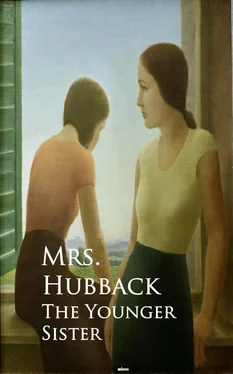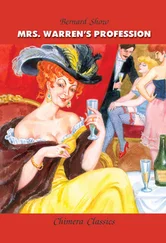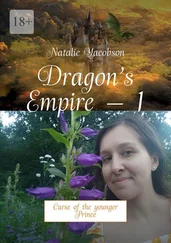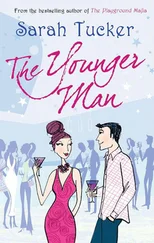"Well, Mary," added he, turning to his daughter, and chucking her under the chin, "and who did you dance with? Who was your first partner?"
"Captain Hunter, sir," replied Mary, demurely, yet blushing a little.
"And who next?" pursued he.
"Mr. Edward Hunter, sir."
"And who is he?"
"Captain Hunter's cousin."
"Oh, aye—very well: who next?"
"Captain Scott, sir."
"Who is he—another cousin of Captain Hunter, eh?"
"No, sir; only a friend of his."
"I thought so," said her father, chuckling.
"Mary was surrounded with red-coats the whole evening," observed Mrs. Edwards. "I must say I should have been as well pleased to have seen her dancing with some of our old friends and neighbours, and less taken up with those soldiers."
It was lucky for Mary that her father had been winning at cards, as he would otherwise, very probably, have been as much offended as her mother seemed to be on hearing of her conduct. He now, however, good-humouredly took her part—only saying—
"Pooh, pooh, my dear, the girl naturally likes officers, all girls do—besides, if those young men are quicker at asking her than others, how could she help dancing with them."
Mrs. Edwards looked very little pleased at an observation which was too true to be contradicted, and observed, in a general way, that she had always remarked girls could contrive to oblige their parents when they had a mind to do so.
"I hope you had your share of officers, Miss Emma," said the old gentleman.
"Thank you, sir, I had quite sufficient," said Emma, quietly.
"Oh, Miss Emma was almost above the officers, she got into the Osborne Castle set, and her partner was no less than Mr. Howard. Did Lord Osborne ask you?"
"No, ma'am," replied Emma.
"I am sure he looked at you enough," continued Mrs. Edwards; "I thought he was going to eat you."
"I was not afraid of that," said Emma, smiling; "but I own I was rather annoyed."
"I think Mr. Musgrove was more insufferable than ever," pursued Mrs. Edwards; "I am glad you did not dance with him, Miss Emma; really that young man is beyond bearing in his impertinence."
"Oh, you should not abuse him to Miss Emma; I dare say her sisters give a very different account of him; he is a great favorite with all of them, I know," said Mr. Edwards.
"I never heard anything of him which particularly prepossessed me in his favour," replied Emma, very coolly. "Elizabeth mentioned him, and, from what I have seen, I should think her description was very like the truth."
Little more was said by any one, and the party, after many yawns, separated for the night, to the great relief of their young guest, who was exceedingly sleepy, and longing for darkness and silence.
CHAPTER III.
The next morning, as the ladies were quietly sitting together, and just as Emma was beginning to expect the arrival of her sister to take her home, a loud knock was heard at the door, which gave audible notice of a far more masculine hand than that of Elizabeth Watson. There was hardly time, however, for more than a brief wonder on the subject, when Mr. Musgrove was announced. The stiffness of Mrs. Edwards' reception, and the cold tranquillity of Mary's manners, seemed to make no impression on him; at least, so Emma judged from there being no abatement of that air of self-complacency which had early struck her as belonging to him.
After the opening compliments to the party, he turned to Emma herself, and presenting a note, observed that this would, in part, explain and excuse his intrusion. It was from Elizabeth to herself, to say, that as her father had found himself better than usual, he had suddenly resolved to go to the visitation which happened that day, and in consequence of his thus employing the chaise, she could not come, as she had promised, to bring her sister home. She added, that she did not, in the least, know what Emma could do, only if the Edwardses asked her to remain, she thought that was the best thing that could be contrived.
After pondering over this unwelcome note for several minutes, Emma was just about to state the dilemma to Mrs. Edwards, when Tom Musgrove broke in.
"I had an interest, Miss Emma, in bringing that note, and a message besides, from your sister, which you must allow me to state. I met Miss Watson in the village seeking for a messenger, and offered to do her errand, as she told me the object of it, on condition that she would sanction my bringing you home in my curricle. Believe me, it will be with the greatest delight that I will drive you to Winston, and the carriage is now at the door waiting for the honour of your occupation."
Emma looked a little distressed.
"Did Elizabeth really wish me to come home that way," said she, hesitating.
"I assure you, my proposal had her full and unqualified consent, and you have only to say the word, and now—in half an hour—an hour—two hours time—any time—I am at your service."
"I am much obliged to you," replied Emma, embarrassed between her fear lest she should be supposed intruding on her hostess, and her extreme dislike of encouraging any appearance of intimacy with Mr. Musgrove; "but I do not think it is in the least degree necessary that I should give you the trouble. The walk is nothing, and I dare say I can easily find a person to carry my few things."
"The
trouble
is nothing, Miss Emma," cried he, "but the walk cannot be ranked in that way; three—four miles—what is it—five perhaps—and such mud and dirt to get through—and after dancing all night too: indeed it must be impossible. And there stand my horses—useless—unemployed save by my unworthy self—indeed you
must
accept my offer."
Emma would not yield; she was quite determined to encounter any inconvenience rather than accept the offered seat; and the more pressing he became the firmer her refusals grew.
Mrs. Edwards, who had been quietly listening to what was passing between them, no sooner ascertained that the inclination of her young visitor was decidedly opposed to an offer, which
she
would have deemed it in the highest degree indecorous to accept, than with a very unusual warmth of manner on her part, she interposed, and greatly relieved Emma by saying:
"If Miss Watson can wait until after luncheon, I shall have great pleasure in conveying her home in our coach."
This well-timed offer was gratefully and gladly accepted, but Tom loudly interposed.
"But you know, Mrs. Edwards, that is contrary to all your rules—quite impossible to have your horses out to-day, after their night-work. Surely you cannot really and seriously mean such a thing—and my curricle here to make it quite unnecessary."
"I do really mean it;" replied Mrs. Edwards steadily, "our carriage and horses are quite at Miss Watson's service; and I am happy to relieve her from the risk which she evidently apprehends in so dashing an equipage as your curricle. She will, no doubt, feel much safer in our coach!"
The gentleman bit his lip, but was forced to yield; and turning to Emma, enquired:
"How did it happen, Miss Emma, that none of your sisters were at the ball?—I don't think I saw them there all the evening."
"My eldest sister," answered Emma coldly, "could not leave my father, and she is the only one at home now."
"Oh, indeed; why how long have the others been away?" then without waiting for an answer, he continued—"How did you like our ball last night? I suppose you did not keep it up much after I was gone!"
"When did you leave the room?" enquired Emma, pleased to give him the retort courteous, for his affected ignorance about her sisters.
"Oh, I did not stay after the Osbornes' party went away—I was tired and bored."
"And
we
enjoyed ourselves nearly two hours after that," cried Emma, "and as the room was less crowded with idlers who would not dance, I think it was particularly pleasant."
Читать дальше












